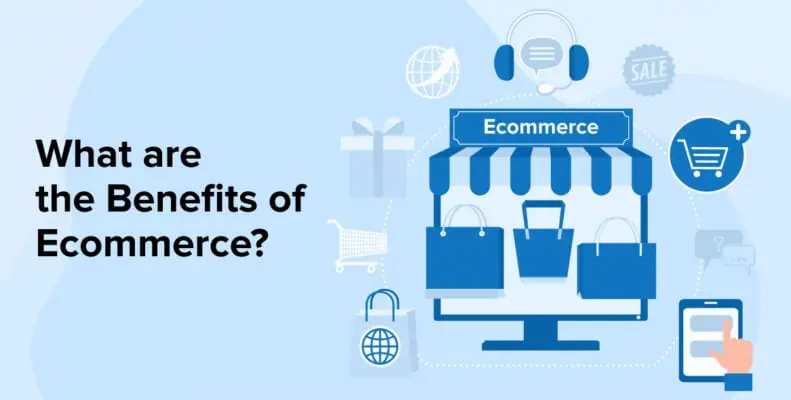
The Importance of E-commerce in Modern Business in 2024
In the rapidly evolving landscape of business, the concept of e-commerce plays a pivotal role in shaping the way companies engage with customers and conduct transactions. E-commerce, short for electronic commerce, refers to the buying and selling of products or services over the internet. This digital marketplace has revolutionized the traditional brick-and-mortar retail model, offering businesses the opportunity to reach a global customer base and operate online stores alongside physical establishments.
What is E-commerce and its Significance in the Business World?
E-commerce is the buying and selling of goods online, allowing businesses to reach customers anywhere in the world through ecommerce websites and ecommerce platforms. This form of online marketplace provides numerous advantages for business owners, such as expanded reach, lower costs, and improved supply chain management. In the business world, the significance of e-commerce is undeniable, as it enables businesses to leverage mobile commerce, social media platforms, and innovative marketing strategies. As Wikipedia explains in its essay on e-commerce, the potential of e-commerce for businesses is vast, shaping the future of global business and changing the way traditional brick-and-mortar stores operate.
E-commerce offers numerous benefits for businesses that sell online, allowing them to reach a wider audience and compete in the digital marketplace. With the rise of ecommerce platforms and ecommerce websites, businesses can now conduct transactions through mobile commerce and social media platforms, expanding their reach and driving sales. This shift towards online selling has transformed the way products are bought and sold, revolutionizing supply chain management and marketing strategies and looking for a good Private Dropshipping Agent. As more businesses realize the potential of e-commerce, the future of ecommerce business looks promising, with businesses of all sizes benefiting from the advantages of ecommerce on Shopify.

Definition and Concept of E-commerce
Ecommerce websites enable to showcase their products and services in an online store, allowing consumers to shop online from the comfort of their homes. This shift towards online shopping has reshaped the way businesses and consumers interact, offering convenience and accessibility like never before.
Benefits and Advantages of E-commerce
The importance of ecommerce in business cannot be understated, as it provides numerous advantages over traditional retail. Ecommerce offers cost efficiency and overhead reduction, allowing companies to operate with lower expenses compared to maintaining physical stores. Moreover, e-commerce platforms enable to have a global reach, expanding their market beyond local boundaries and attracting a diverse customer base.

The Evolution of E-commerce in Business
Ecommerce has become an integral part of the business, with companies realizing the significance of online and offline channels in driving sales and customer engagement. The development of ecommerce has further enhanced the shopping experience for consumers, offering features like personalized recommendations and secure payment options.
Types of E-commerce Platforms for Modern Businesses
Ecommerce presents various types of ecommerce for businesses to choose from. From small business owners to large corporations, businesses can leverage the benefits of ecommerce to enhance their business performance. With the growth of ecommerce, ecommerce offers numerous advantages such as increased loyalty and repeat business. In addition to e-commerce transactions, e-commerce allows businesses to offer online commerce with easy access to pdf files and the ability to connect with another business.

Different Types of Ecommerce Models
Ecommerce come in various models, each catering to specific business needs and industries. Whether it’s a B2B (business to business) or B2C (business to consumer) model, choosing the right ecommerce is crucial for the success of an online business on Amazon.
Choosing the Right Ecommerce for Your Business
Selecting the appropriate ecommerce involves considering factors like scalability, customization options, and integration capabilities with existing systems. Businesses must evaluate their requirements and opt for a platform that aligns with their objectives and growth plans.
Key Features of Ecommerce
Ecommerce offer a range of features to enhance the experience for customers and streamline operations for businesses. From inventory management tools to marketing integrations, these platforms enable companies to optimize their online presence and attract repeat business.
Benefits of Ecommerce over Traditional Retail
E-commerce has become a vital part of modern business operations. E-commerce provides businesses with numerous advantages over traditional retail. One of the primary advantages of ecommerce is its ability to eliminate the need for physical storefronts, allowing to reach a global audience. Additionally, ecommerce offers more efficient business processes and reduces overhead costs. A well-designed e-commerce website can help businesses unlock the full potential of ecommerce and stay ahead in the future of commerce.
Cost Efficiency and Overhead Reduction
Ecommerce allows to save on expenses associated with maintaining physical stores, such as rent, utilities, and staff salaries. This cost efficiency translates to competitive pricing and increased profitability for online businesses.
Global Reach and Market Expansion
One of the significant advantages of e-commerce is its ability to reach a global audience, breaking geographical barriers and expanding market reach. Companies can engage with customers from different regions and cultures, driving sales and fostering brand awareness on an international scale.
Enhanced Customer Experience and Convenience
Ecommerce provides customers with the convenience of shopping anytime, anywhere, from any device. The seamless online shopping experience, coupled with secure payment gateways and swift delivery services, enhances customer satisfaction and encourages retention.
The Future Growth of E-commerce in the Business Landscape
Ecommerce in the modern business landscape is set to see exponential growth in the coming years. With the importance of ecommerce rising rapidly, more businesses are expected to shift towards online platforms. E-commerce also eliminates geographical barriers and allows to reach a wider audience. In the next five years, we can expect a significant rise in e-commerce transactions.

Trends Shaping the Future of Ecommerce
The rapid pace of technological innovation continues to shape the future of ecommerce, with trends like AI-powered recommendations, augmented reality shopping experiences, and voice commerce gaining traction. Businesses need to stay abreast of these developments to remain competitive in the evolving digital market.
Technological Innovations Driving Ecommerce Development
Technological advancements such as blockchain for secure transactions, chatbots for customer service, and data analytics for personalized marketing are revolutionizing the ecommerce landscape. Embracing these innovations can enable to streamline operations, improve customer engagement, and drive sales growth.
Challenges and Opportunities in the Ecommerce Industry
While ecommerce platforms offers vast opportunities for business expansion and revenue generation, it also presents challenges such as cybersecurity threats, market saturation, and changing consumer preferences. Companies must adapt to these dynamic conditions by fostering innovation, building customer trust, and exploring new market segments.
Effective Inventory Management
Effective inventory is crucial for e-commerce businesses to ensure timely delivery and customer satisfaction. By maintaining 10 accurate stock levels and utilizing advanced software systems, businesses can streamline their operations and minimize the risk of overselling. E-commerce eliminates the need for physical stores, allowing to focus on optimizing their online inventory processes.
Importance of Efficient Inventory Management
Efficient inventory is crucial for ecommerce businesses to ensure timely order fulfillment, prevent stockouts, and optimize product availability. By leveraging inventory tracking software and automation tools, companies can streamline their operations and meet customer demands effectively.
Strategies for Optimizing Inventory Control
Implementing strategies like demand forecasting, safety stock management, and just-in-time inventory can help businesses maintain optimal stock levels and reduce carrying costs. By analyzing sales data and consumer trends, companies can make data-driven decisions to enhance their inventory control.
Tools and Software for Streamlining Inventory Processes
Various inventory tools and software solutions are available to simplify the tracking, monitoring, and replenishment of stock in ecommerce operations. These tools enable businesses to monitor inventory in real-time, automate reorder processes, and minimize the risk of overstocking or understocking.
Private Agent for Dropshipping Success